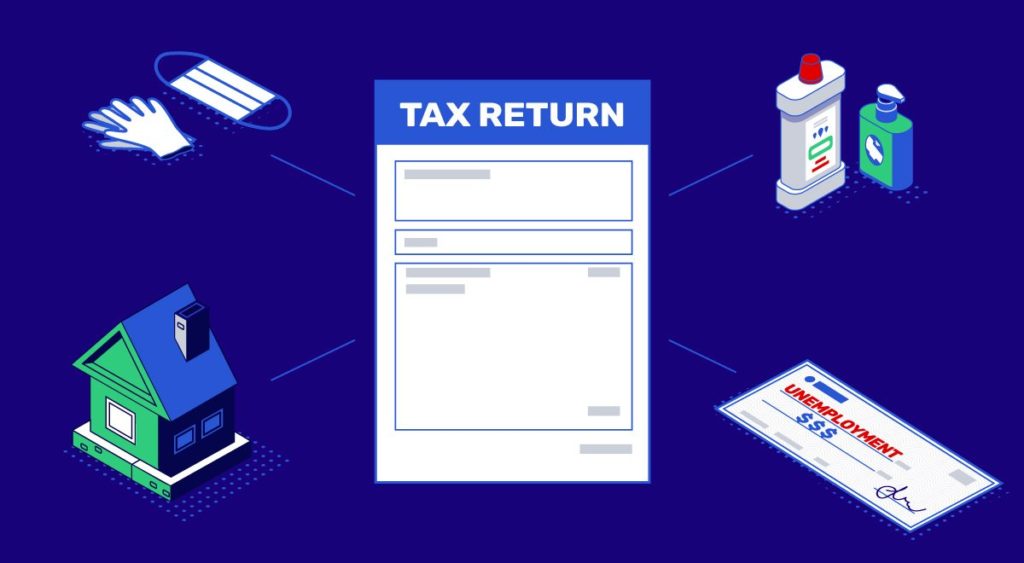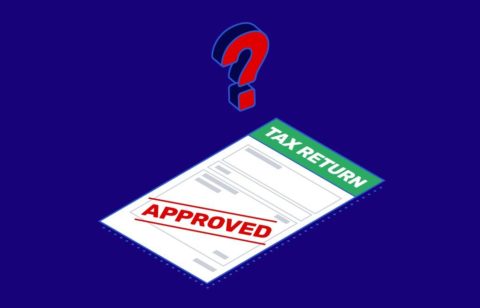Tax season is right around the corner. The Internal Revenue Service announced that the nation’s tax season will start on Friday, February 12, 2021, when the agency will begin accepting and processing 2020 tax year returns until the April 15, 2021 deadline.
With everything that happened last year from stimulus check and high rates of unemployment to PPP loans, there are other factors to consider for your tax return for 2021. Here’s what you can expect.
What You Need for Your 2021 Tax Return
Most people who received an income in the United States during 2020 will need to file a tax return for 2021. Here’s what you’ll need.
- IRS tax forms: You can call the agency to have forms mailed to you; use tax software; take advantage of the IRS Free File program, which offers blank fill-in IRS forms to everyone; download forms from the IRS website; or visit your local IRS office, library, or post office.
- Personal information: This includes your full name, date of birth, social security number or tax ID number, information about your stimulus payment, and banking information to receive your refund through direct deposit.
- Dependent information: This is information about dependents living in your household and their personal information.
- Sources of income: You’ll receive a W-2 form from your employer; if you’re unemployed, benefits are reported on Form 1099-G. Self-employed individuals use 1099 forms as well as a record of all income and business-use asset information. Taxpayers must also report retirement savings, investments, dividends, and any other sources of income.
- Deductions: If you plan to claim anything as a deduction, you need to be prepared! Some deductions may require itemization while others may let you take out the standard deduction.
Tax Deductions and Credits to Consider
Tax deductions can help lower how much of your income is subject to federal income taxes, and tax credits lower your actual tax bill. Here are a few deductions and credits to consider for your tax return for 2021.
Charitable Deductions
The CARES Act allows taxpayers to deduct up to 100% of their adjusted gross income in qualified charitable donations if you plan to itemize these deductions. As far as the standard deduction, you can write off up to $300 of contributions you made in cash.
Medical Deductions
You can deduct medical expenses up to 7.5% of your AGI.
Business Deductions
For self-employed individuals, you can deduct business travel expenses and home office expenses.
Child Tax Credit
Families can claim up to $2,000 per qualified child as a tax credit. The income limit is $200,000 for single parents and $400,000 for married couples. Because this is a refundable credit, families can receive up to $1,400 per child as a refund.
Earned Income Tax Credit
The EITC is meant to help workers who earned up to $56,844 during the 2020 tax year. This credit could save you anywhere between a few hundred to several thousand dollars.
Coronavirus and Your Tax Return for 2021
The coronavirus pandemic will affect how you file your tax return for 2021. Keep these in mind when you sit down to do your taxes.
Stimulus Checks
In 2020, the CARES Act issued a $2 trillion relief package to millions of Americans up to $1,200 per qualifying individual and $500 per qualifying child. This doesn’t count as taxable income; instead, it’s treated as a refundable tax credit.
Payment Protection Program Loans
The CARES Act also helped small businesses with PPP loans; and, as long as the funds were used on certain business expenses, the loans would be forgiven. The IRS has stated that any expenses that were paid with PPP funds cannot be deducted from taxable income. Additionally, businesses will need their application for loan forgiveness approved by the Small Business Administration. This may take a while as the SBA is processing applications for $525 billion given to 5.2 million small business borrowers.
Unemployment Benefits
For those who received benefits while unemployed, income taxes will need to be paid on that money.
Educational Expenses
Money withdrawn from a 529 Plan or Educational Savings Account must be used for educational expenses. Because of remote schooling and canceled classes, this money may have been refunded. You have 60 days to put this money back into your account or use it on educational expenses. If this money is used on other expenses or not put back into the account within 60 days, you may have to pay income taxes and a withdrawal penalty.
Retirement Plans
The CARES Act allowed individuals to withdraw money from their retirement accounts during 2020 before the age of 59 ½ without paying fees. However, this money will be taxed as ordinary income come tax season. If you did withdraw funds, you have three years to put those funds back and get a refund on taxes you paid on that money.
Are You Prepared for Your 2021 Tax Return?
Start filing your tax return for 2021 as soon as you can. The longer you wait, the less time you have to prepare, and the worst thing you can do is to wait until the deadline to file. There are plenty of easy-to-use tax software programs; or, you can always consult a tax professional.





